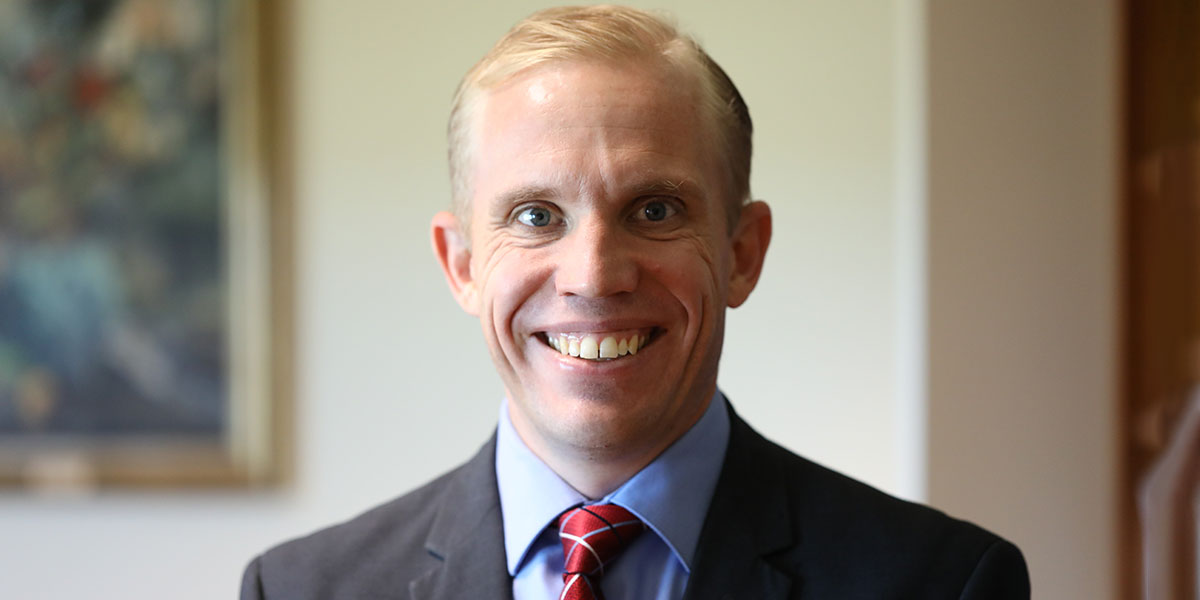Meet Baylor’s expert on environmental health & disaster response

Dr. Benjamin Ryan, a clinical associate professor in Baylor’s Department of Environmental Science, has worked, taught and researched environmental health and disaster management across the Indo-Pacific, Europe, and North America. That experience was put to the test not long after Ryan came to Baylor, when his expertise was tapped to help guide the university through the COVID-19 pandemic.
Usually post-disaster response focuses on immediate relief, including stopping the spread of communicable diseases in the disaster’s aftermath. But in recent years, experts have recognized the need to also focus on caring for those with non-communicable diseases following a disaster, when infrastructure lapses can hit the most vulnerable individuals hardest.
For instance: After Cyclone Yasi hit Australia in 2011, Ryan was part of a team that began working for solutions — including partnering with Diabetes Australia to develop guidelines for emergency service workers, encouraging the development of an alternate, cyclone-resilient health care site in Cairns, Australia, and proposing an environmental health disaster response framework. For Ryan, it’s about a ‘whole of society’ approach to protecting the most vulnerable communities — bringing together many disciplines (health science, crisis management, disaster risk reduction, etc.) to protect the health of the community.
When COVID-19 hit, Ryan became part of Baylor’s COVID-19 task force that has helped guide the university’s response, policies and approaches through the pandemic. Made up of experts from a variety of fields, the task force has, over the last two years, made recommendations to University leadership so that the President and others could make well-informed decisions regarding the health and safety of the entire Baylor community.
Beyond campus, Ryan is currently working with the Baylor Collaborative on Hunger and Poverty to explore the COVID-19 Emergency Meals-to-You (eMTY) program, set up in response to the closure of schools during COVID-19, and to develop food security strategies that focus on schools. Ryan and others conducted interviews, focus groups, and five in-person workshops across the country and developed a pandemic/disaster plan for implementing the eMTY. Their next step is to survey public health services and characteristics at schools, to develop a food security and resilience action plan for strengthening access to eMTY at schools and beyond.
Ryan is also a part of an extraordinary team from around the world working on a project funded by the World Health Organization that will identify strategies for strengthening community resilience during and after the COVID-19 pandemic in eight locations across four countries. A major part of the project is The Public Health System Resilience Scorecard, which has been implemented around the world (including right here in Waco) to help identify, evaluate and recommend priority actions when it comes to things like public health emergencies and natural disaster response.
In the classroom, Ryan encourages his students to actively explore topics in a way that integrates Christian values. Being able to mentor undergraduate and graduate students as they get ready for future studies or employment is an important part of his work at Baylor. “I encourage research that allows a student to understand how particular practices can save lives and livelihoods, promote economic growth, and enhance individual and community well-being,” he says.
As we (hopefully) emerge from COVID-19, Ryan looks forward to working with students, colleagues and the Baylor community to enhance food access for school children, increase public health system resilience, and mitigate the environmental public health stressors related to rapid urbanization.
Sic ’em, Dr. Ryan!

